Understanding fractions Extra Challenge Geometry Worksheets for Ages 4-8
8 filtered results
-
From - To
Unlock your child's potential with "Understanding Fractions: Extra Challenge Geometry Worksheets for Ages 4-8." These expertly designed worksheets blend engaging visuals with interactive problems to make learning fractions fun and effective. Suitable for early learners, these resources build a strong foundation in geometry and fractions through hands-on activities. Help your child master essential mathematical skills while sparking their curiosity and confidence. Perfect for home or classroom use, each worksheet step-by-step introduces core concepts, ensuring students grasp the basics of fractions, shapes, and more. Empower your young learner with these vibrant, educational resources and watch their mathematical abilities soar!
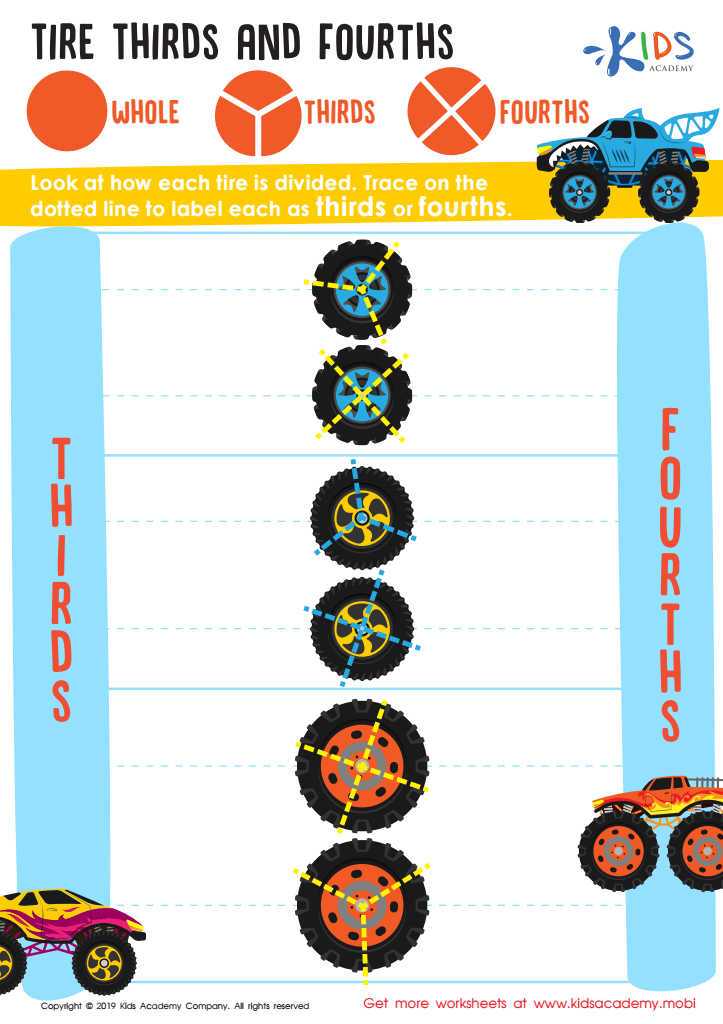

Tire Thirds and Fourths Worksheet
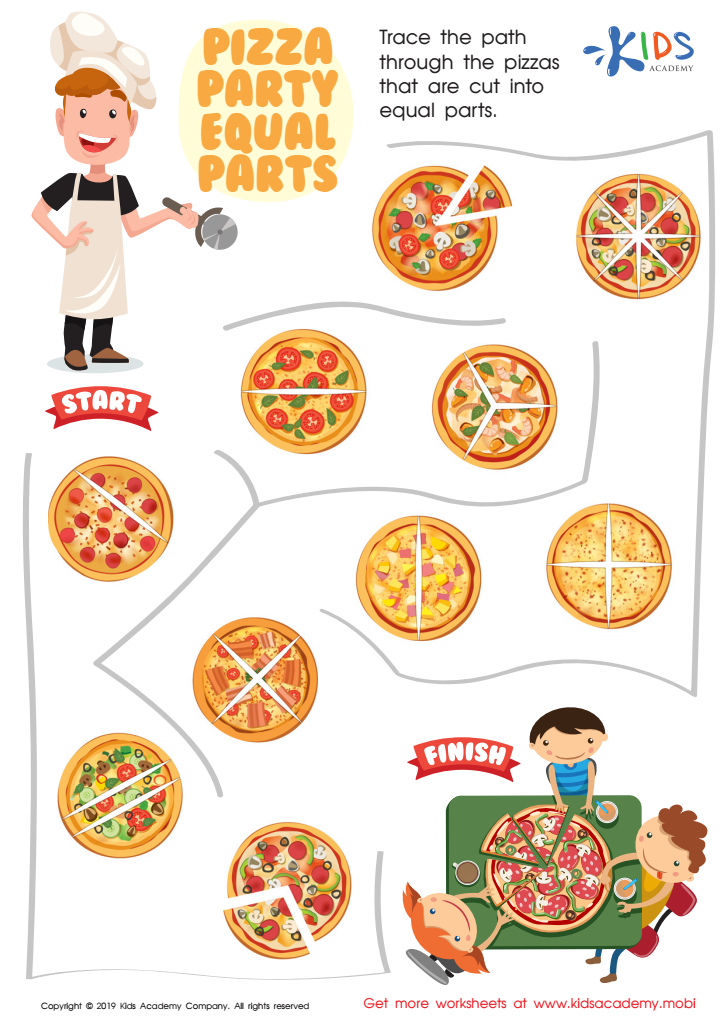

Pizza Party Equal Parts Worksheet
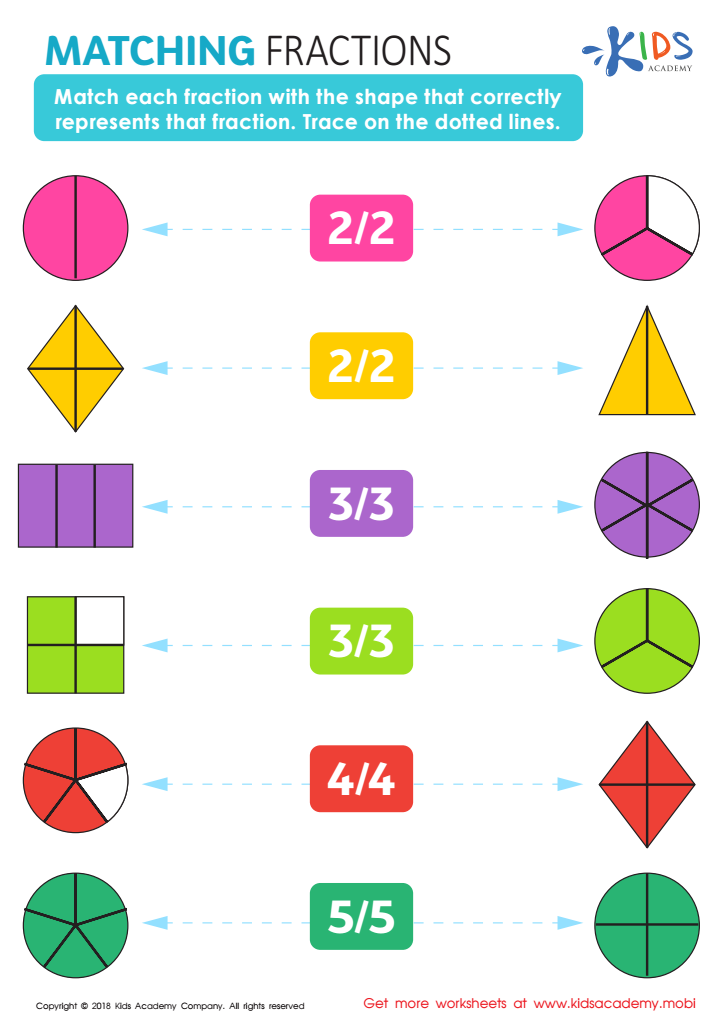

Matching Fractions Worksheet
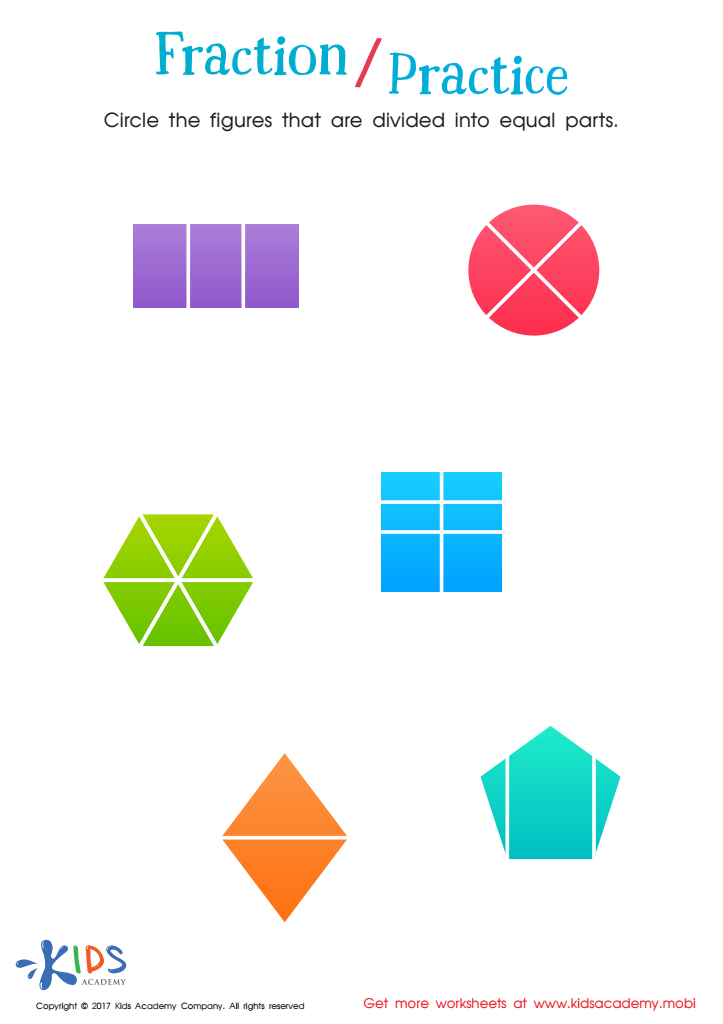

Fractions: Shapes Worksheet
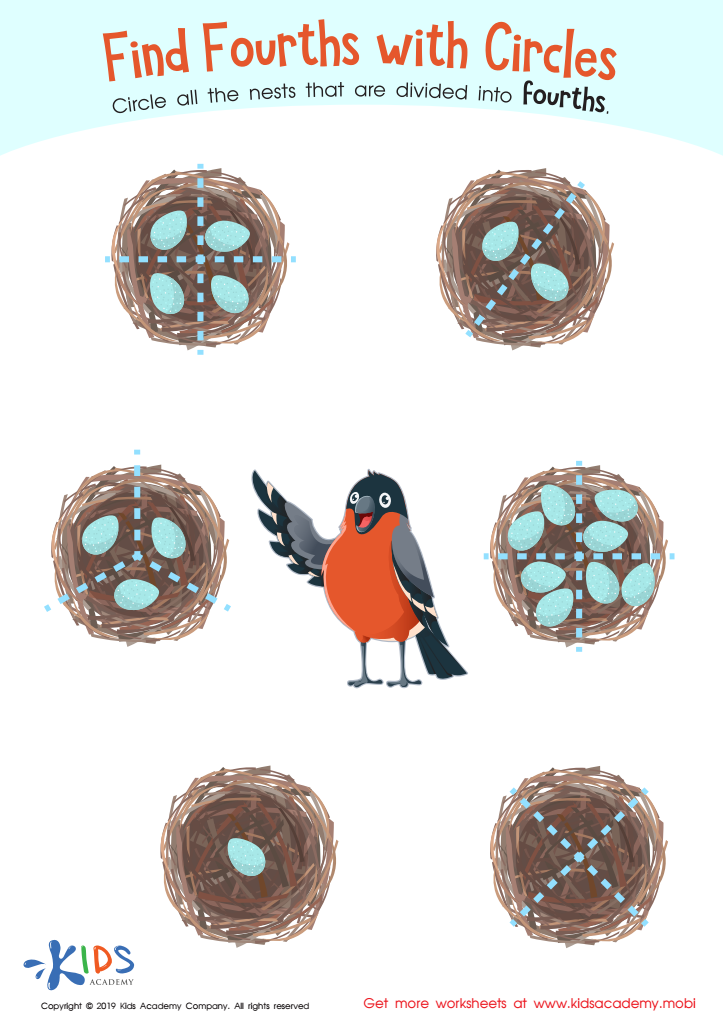

Find Fourths Circles Worksheet
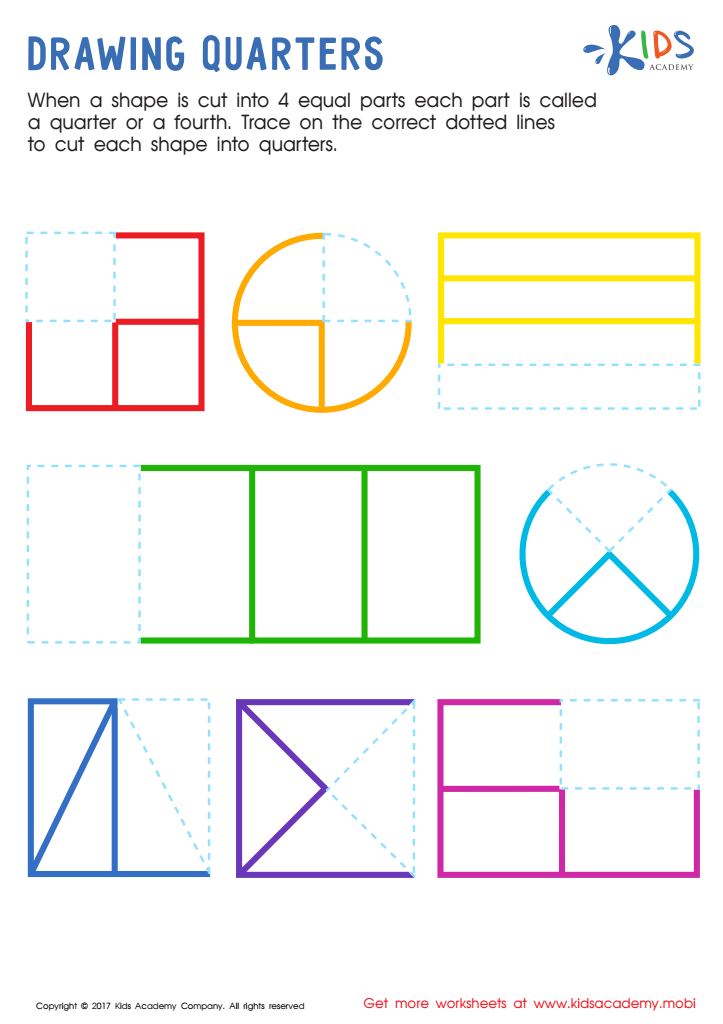

Drawing Quarters Worksheet
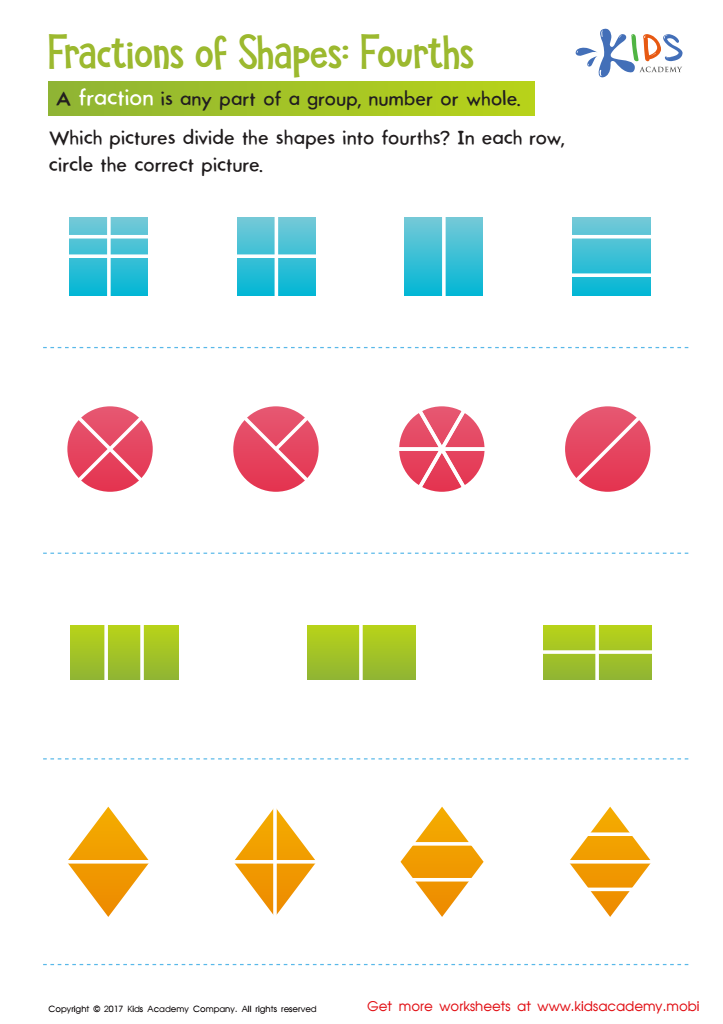

Fractions of Shapes Worksheet
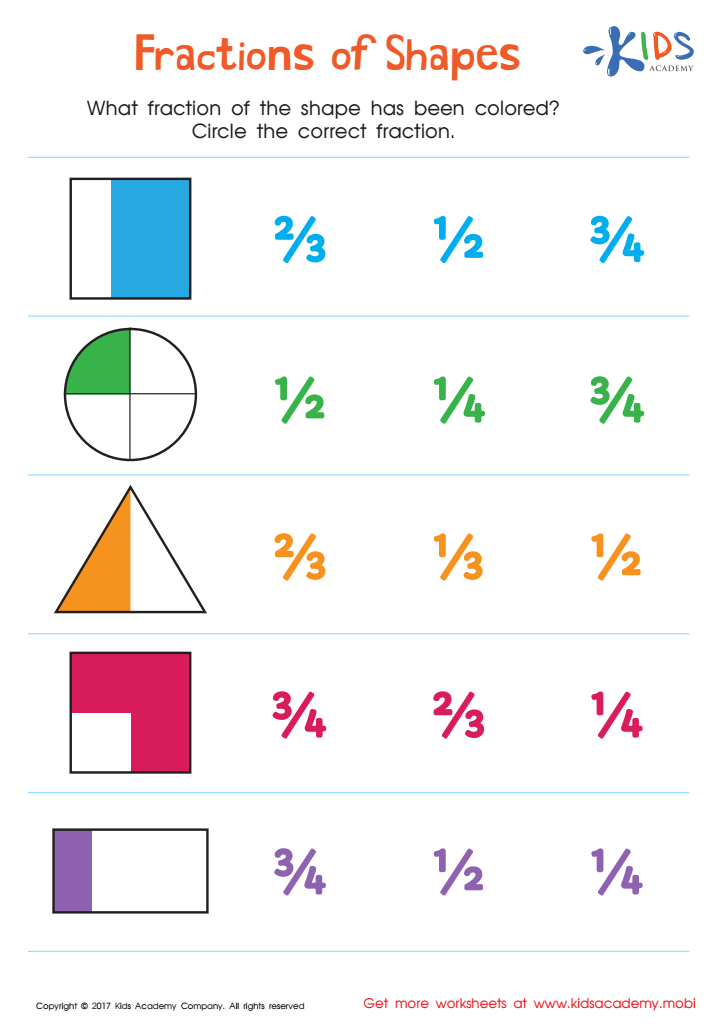

Fractions of Shapes: Math Concept Worksheet
Understanding fractions and basic geometry at an early age is incredibly important for young learners aged 4-8. Introducing these concepts early can benefit children in several ways, enhancing both their academic and life skills.
Firstly, early familiarity with fractions helps build a strong foundation in mathematical literacy. Fractions are fundamental to many everyday activities, such as cooking, sharing, and even time-telling. When children grasp these ideas early, they become more comfortable with more complex mathematical concepts encountered later in school.
Extra challenges in geometry also stimulate young minds, improving their spatial awareness and problem-solving skills. Shapes, patterns, and spatial relationships provide a hands-on way for children to understand the world around them and create a healthy curiosity for learning. Moreover, learning geometry helps children follow directions, develop their motor skills, and hone their ability to think abstractly.
Introducing these concepts through engaging activities ensures that learning is fun and effective. By understanding and practicing fractions and geometry during these formative years, children gain confidence and enthusiasm for math, laying a robust foundation for their future educational journey. Thus, parents and teachers should prioritize these topics to foster well-rounded intellectual growth in children.
 Assign to My Students
Assign to My Students































